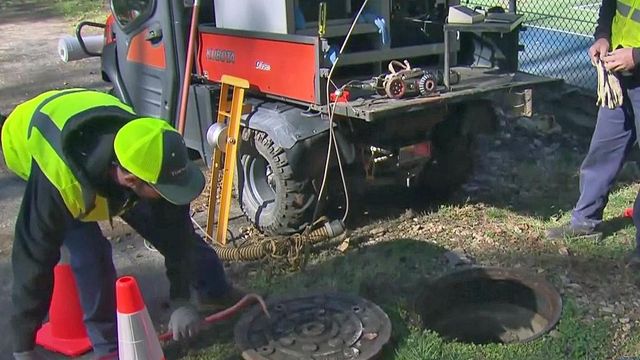Town of Cary wants to screen sewage to find opioid users
The Town of Cary wants to screen residents' bodily waste in order to learn where people are using opioids.
Posted — UpdatedState officials said North Carolina has seen an 800 percent increase in fatal overdoses from opioids over the past decade, but more data is needed to help solve the crisis.
Officials with the Town of Cary said there will be roughly 10 sampling stations within the town's wastewater collection system that will measure the concentration of opioids in human waste and wastewater. Each station will attempt to measure the level of opioid use in an area of about 3,000 to 5,000 homes. The data will be calculated to estimate the daily rate of opioid usage per every 1,000 people.
"It's very unique. We've never done anything like this in Cary before," said Jamie Revels, utilities director for the Town of Cary.
The data won't be able to pinpoint usage to a specific home or user, officials said.
Town officials are working with public and private agencies to determine the best locations for the sampling stations.
"Through this unique collection system, we will be able to go into small areas, like 5,000 people as opposed to 40,000 or 50,000," said Mike Bajorek, deputy Cary town manager. "We hope that will change the way public health officials will do their work."
Of the 35 cities and towns competing in the challenge, the grand prize winner will receive $5 million to implement their idea and four other cities will be awarded $1 million.
• Credits
Copyright 2024 by Capitol Broadcasting Company. All rights reserved. This material may not be published, broadcast, rewritten or redistributed.





